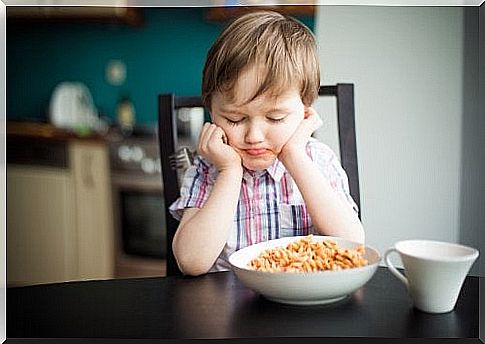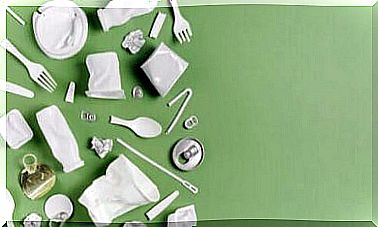The Child Refuses To Eat: What To Do In This Case?

You’ve tried everything, but you just have to say, ” My baby doesn’t want to eat. ” Why is this happening? Is it possible that your child has a problem? Or maybe it is a consequence of family tradition and food culture?
Read on to find out why babies often have trouble eating and why your baby refuses to eat .
Why doesn’t my child want to eat
If your child refuses to eat, chances are that you are worried. And you do have a reason. If a baby is not eating properly, it cannot develop properly. In fact, children who do not eat well are more sensitive to environmental factors that cause many infectious diseases.
However, this situation is usually common in toddlers and preschoolers. Why? As children grow up, they demand more independence and want to eat alone. In addition, this fact is associated with changes in appetite. They may be picky about food, eat slowly, or they want to always eat the same thing or they just don’t want to eat.
Fortunately, these maladjustments are normal and usually of short duration. According to some sources, 25 out of 100 babies have feeding problems in normal situations. So you are not alone in your situation.
Signals and risk factors
While there are stages where children don’t want to eat, we need to ensure that this does not become a more serious problem. Therefore, below are some symptoms that indicate health warning signs that may occur if your baby refuses to eat.
- Weight loss or weight loss
- Irregular growth
- Nutritional deficiencies
- Inappropriate psychological development
In conclusion, two important parameters should be given special attention: frequency and duration, as well as the number and scale of situations when the child refuses to eat. If you notice important changes, don’t hesitate to see your doctor for professional help.
Why doesn’t my child want to eat
The fact that your baby does not want to eat may be due to several factors. Among them are personality traits, health status, and eating habits that they have learned.
Likewise, it is also important to include information about parents: parents’ behavior and eating habits almost always influence children’s misbehavior.

Some of the parental factors influencing children’s eating habits include:
- Educational skills
- Nutrition knowledge
- Relationships between parents
- Their physical and emotional state
What can you do if your child refuses to eat
Set mealtimes
It is important that your child receives three meals and two snacks at the same time each day. If you stick to this schedule, you can be pretty sure your little one will have an appetite for lunch.
- It is also important to set a time limit for eating. Taking 20 minutes is enough for your child to consume the appropriate food.
Don’t make him eat
Sometimes, out of desperation, parents make special meals or force their children to eat.
- If your baby refuses to eat it is better to wait until the next meal when he is hungry.
- If you force them, a tense and unpleasant atmosphere will arise between you , which will not help him in any way.
Use reinforcements
It has been proven that the so-called “card system” (stars, suns or other symbols stuck on a special board to reinforce the desired behavior of children) gives good results. This technique increases the child’s motivation and openness to trying new foods.
- In addition, this method helps your baby eat in less time as well as eat all of his food. Why don’t you try?
Eat together
The good part of nutritional education is having the family eat together whenever possible. Eating together, without stress and discussion, will help your child enjoy their mealtime.
- This habit is unfortunately less and less today due to the modern pace of life. However, it can affect the health of the whole family.
Other quick tips
- Offer your baby a variety of foods. Try new products one at a time. You’ll have to try 15 or 20 times to get it. Therefore, you need to be patient and persistent.
- Teach them good eating habits. Part of psycho-educating a child to introduce a good diet is to show him the importance of good nutrition to maintain perfect health.

- Let it help you in the kitchen.
- Add fun to your food. Use cookie cutters, mold faces from food, or any other idea that will get your baby interested in attractive food and enthusiastic about new foods.
- Avoid giving or receiving food to your baby as a reward or punishment.
- The little one should eat what is prepared. However, it is good to include at least one dish that she likes along with other dishes.
- Make sure you don’t satisfy your hunger with milk, juice, or sweetened drinks between meals.
- Serve appropriate portions according to your child’s age.
- When shopping, let him choose the healthy foods he wants to eat.
- It is essential to give an example. Showing your child that you are eating healthy and varied foods invites them to do the same.
Summary
Remember: if your child refuses to eat, he shouldn’t be pressured. Children often eat when hungry and stop eating when satisfied.
On the other hand, your main task is to offer a good selection of healthy foods that your child can choose and decide how much to eat or not to eat. We hope these tips will help you improve your eating behavior in your home.









